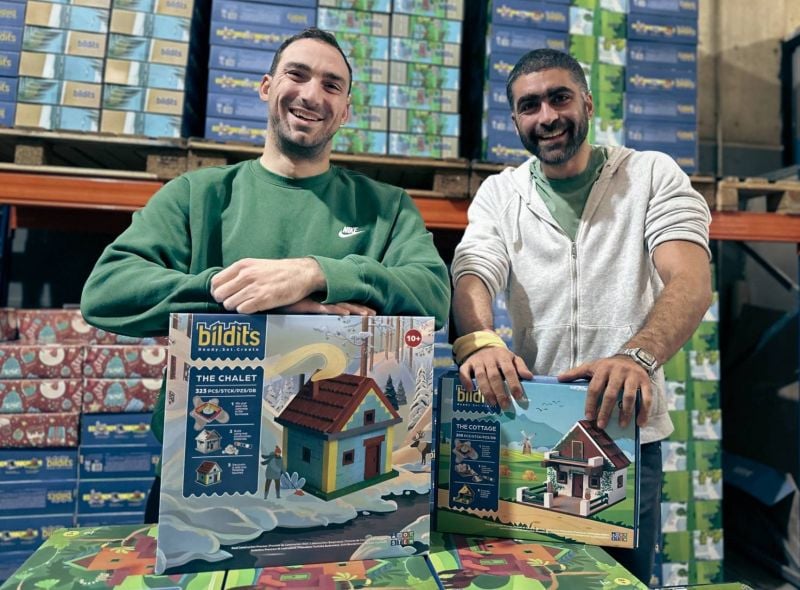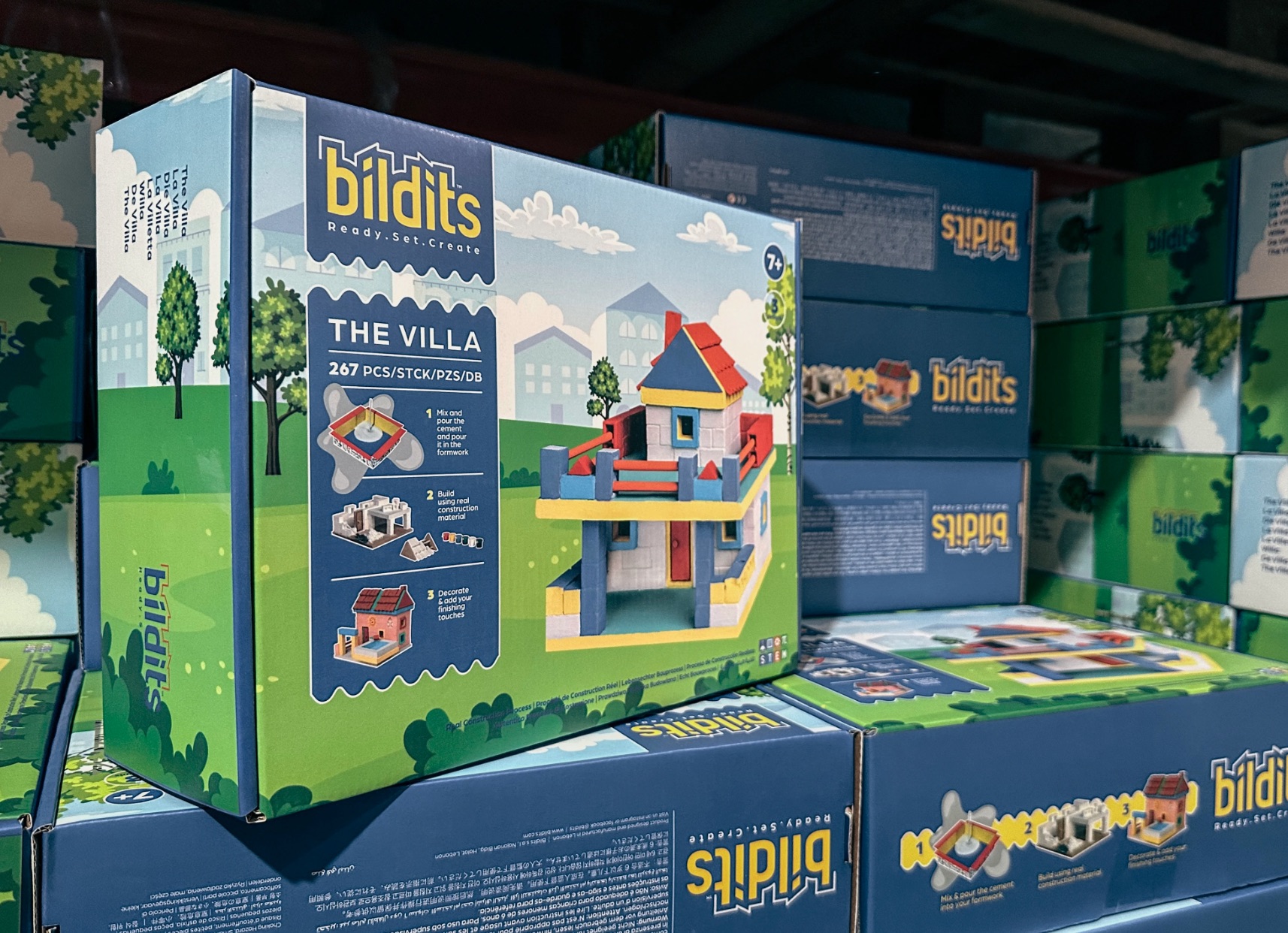
Joseph Dib (L) and Nadi Chemaly (R), two of the four co-founders of Bildits, pose at the toy factory in Halat. (Credit: Fouad Gemayel/L'Orient-Le Jour)
Many kids have found Bildits sets under their Christmas trees this holiday season.
“We received very encouraging feedback from parents. They told us that children have never concentrated so hard for hours,” said Joseph Dib, one of the Bildit’s four co-founders and CEO. “Our kits are just as suitable for boys as they are for girls,” he added.
The founders established the Bildits factory in Halat, Jbeil, away from curious onlookers, to protect their production line since local and international competition can be tough. Besides Lebanon, these locally-produced toys, which utilize real building materials, are sold in Spain, Portugal, Italy, Romania, Georgia, Taiwan, the United Arab Emirates and Kuwait. In Lebanon, more than 100 retailers sell Bildits, Dib said, at prices ranging from $17 to $85. The materials in the kits are mostly locally sourced.
Endorsed by UNICEF
It all started in 2017, when Rayan Barhouche, one of the company’s co-founders, began organizing fun workshops for children while working in the construction sector. At the time, Barhouche was in charge of a troop of young scouts, who were instantly won over by the concept of the kits. This inspired Barhouche, who realized that there was both a demand and need for such a product. He soon designed a kit for children that was representative of a real construction site and could be sold in shops, and the Bildits company was launched.
To test their prototype and put the initial model to the test, the company took part that same year in the Grow My Business competition, launched by the Beirut Traders Association in collaboration with MIT Enterprise Forum - Pan Arab Region, and Bank Audi. Bildits placed second in the competition.
The founders were awarded the equivalent of $20,000, but more importantly, they were given the confirmation that their model was viable. Marketed at the end of 2017 in a single large toy shop in Lebanon, the first kit was a hit: 100 replicas were produced and the stock quickly sold out. The momentum was there, and the company grew and structured itself, redesigning its product and packaging, and expanding its team.
Bildits kits were also been endorsed by UNICEF, because they foster creativity, curiosity, and open-mindedness in children while developing their psychomotor and cognitive skills in a fun and tactile way.
 Bildits kits are currently available in 10 versions and 25 designs. (Credit: Fouad Gemayel)
Bildits kits are currently available in 10 versions and 25 designs. (Credit: Fouad Gemayel)
Since 2019, the company has developed several programs dedicated to young people aged 7 to 12, which it offers in some schools on an extracurricular basis.
“We had partnerships with 80 public schools in Lebanon that embarked on this UNICEF program. We expected to have almost 1,000 pupils, for whom we trained around 100 instructors. But everything fell apart when the crisis broke out,” said Nadi Chemaly, one of the co-founders.
2020, a pivotal year
“2020 was a pivotal year for us,” recalled Dib, “because we wanted to export our products when we had to deal with the changes brought about by the crisis.”
The entrepreneurs had to overhaul their production chain and make several changes to their products. They needed to reduce the weight of the kits, which complicated their ability to export.
While expanding the Bildits range, the company gradually figured out how to make their products lighter. There are now 10 kits and 25 models available, weighing between 2 and 6.5 kg — a far cry from the 12.5 kg of the first model. Rubble and cement were replaced by lighter, more suitable materials.
These Innovations are bearing fruit: Bildits’ sales increased by ten times between 2019 and 2022 and the company aims to double this performance come next year. The number of employees also reveals the upward growth. When it started, the Bildits had two employees. Now it has 15, not counting the 15 to 30 workers at the factory, whose numbers vary depending on the time of year, and the 25 to 30 instructors around the world with which Bildits collaborates for school activities, including those currently taking place in 10 schools in Lebanon.
“By the end of 2024, we intend to double our international presence to 20 countries,” said Chemaly. “We aim to market our products in more than 50 countries on every continent over the next five years.”
Bildits is currently focusing on developing its product range and will soon be introducing new models and expanding its production line further.
“We are going to increase our production capacity to 130,000 kits in 2024, compared with 30,000 at present,” said Dib. “Our kits are certainly intended for young children, but in reality, they are also for adults of all ages, up to 99!” exclaimed Chemaly.
This article was originally published in French in L'Orient-Le Jour. Translation by Joelle El Khoury.
- A culinary journey from Beirut to Brussels cooks up tradition, love and teta's recipes
- In Tripoli’s Bab al-Tabbaneh and Jabal Mohsen, ex-rival fighters light up former frontlines with solar energy
- Savvy Element: Finding a niche in the local self-care and home-care market, despite Lebanon’s crisis